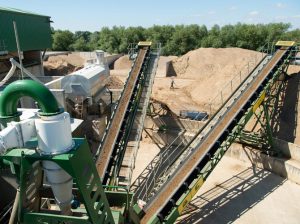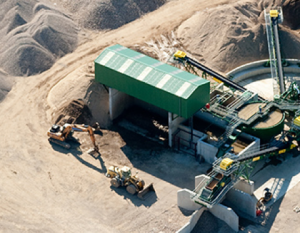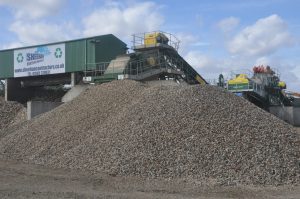The world’s consumption of natural resources has reached record levels, but recycling is falling, the think tank Circle Economy has revealed.
Circle Economy has reported the amount of material used has reached 100bn tonnes a year. Its report warns the huge strain being placed on the world’s resources due to unsustainable extraction of fossil fuels, metals, building materials and trees is exasperating our global climate emergency.
In the last two years, consumption has jumped by more than 8% but the reuse of resources has fallen from 9.1% to 8.6%, the report found. The think tank found that on average every person uses more than 13 tonnes of materials per year. It also reported that some nations are making steps towards circular driven economies in which waste and pollution are reduced to zero.

Call for urgent adoption of circular driven economies
Harald Friedl, chief executive of Circle Economy said governments must “urgently adopt” circular driven economies to maintain living standards and avert the climate emergency. While Marc de Wit, the report’s lead author, added: “We are still fuelling our growth in population and affluence by the extraction of virgin materials. We can’t do this indefinitely – our hunger for virgin material needs to be halted.”
The warning is stark and rightly so. But the good news is government and industry does not have to completely start from scratch to create and develop the circular driven economies that are required. They exist in at least 14 countries. In some areas of the UK they are thriving micro communities. But they urgently need support and greater awareness. From support at a planning level through to tax breaks and helping improve awareness of sustainable alternatives.
With improved support at government level the circular driven economy and sustainable construction can be the heartbeat of sustainability. With that the UK could become one of the world’s leading nations on this vital movement along with France, Germany and Spain.

Recycling construction and demolition waste
The circular economy is a concept in which materials are produced to be constantly recycled or re-used. At the Sheehan Group we believe it is incumbent on us all to ensure we extract maximum value from resources and preserve natural resources.
The Sheehan Group have been at the forefront of the circular economy in Oxfordshire. In 2012 we invested in the installation of a CDE recycling plant that enabled us to produce recycled construction products from construction and demolition waste. The water treatment facility is used to wash construction and demolition waste, destined for landfill, turning it into reusable aggregate.
The process reduces demand on the environment for natural resources, by re-creating high quality secondary aggregate and sand from waste. In this period, it has saved 775,000 tonnes of construction and demolition waste from landfill, by reprocessing it into recycled aggregates. The 775,000 tonnes saved is the equivalent of 1,700 Boeing 747 planes at maximum take-off weight.
We can make high-quality recycled aggregate, recycled sand, concrete blocks and ready-mixed concrete from waste materials. By using recycled aggregate contractors help the environment by conserving primary aggregates and saving waste material being sent to landfill. Additionally, local waste that is processed via a recycling process and sold locally reduces the need for transportation.

Recycled construction products can be the heartbeat of sustainability
Re-using waste in construction and using it locally is critical to increasing the success of a circular driven economy. With stronger commitment it can become the heartbeat of sustainability in the UK.
We hope that the stark report by Circle Economy will encourage more key stakeholders to embrace the circular economy. The great beauty of circular economies is that by multiple local communities taking positive steps together it can create a cumulative effect nationally and globally and gradually have a greater positive impact.
To make this happen one of the key messages must be recycled construction materials are of high quality, reduce the impact on the environment, improve living conditions, and are competitive on price.